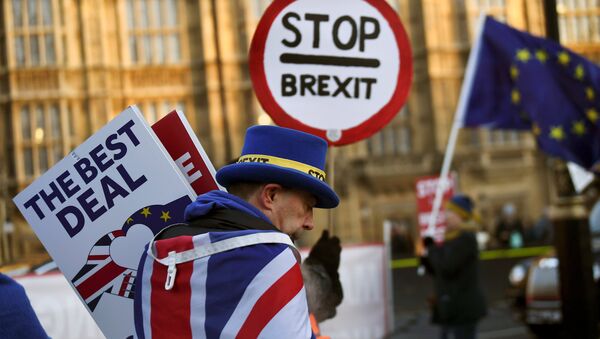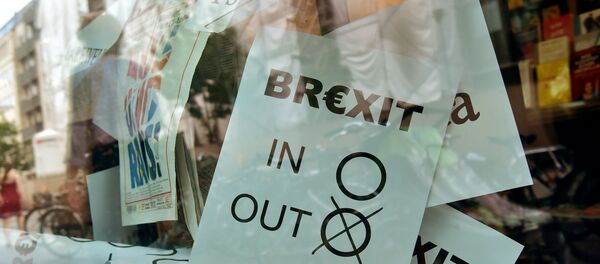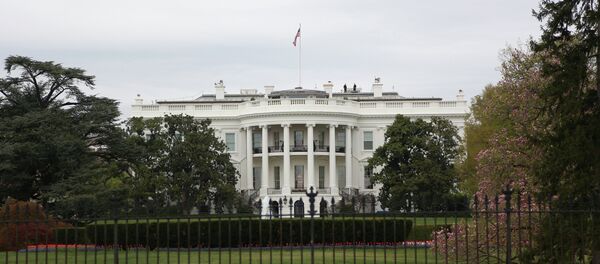Sputnik discussed May's plan with Professor Federico Fabbrini, director of the Dublin City University Brexit Institute and professor of European law at the DCU School of Law and Government.
Sputnik: Experts and politicians say that Mrs. May's plan B is essentially nothing new. Given the looming deadline, how possible is it to come up with a deal that will satisfy all the parties?
This is understandable because on the one hand, it's unlikely that the UK government will be able to secure a different kind of deal with the European Union. Nevertheless, on the other hand, this obviously raises important challenges because that Brexit deal was voted down in the House of Commons a week ago with over 200 votes against that deal in the majority. So, we are, obviously, at a critical moment in the Brexit negotiations.
Sputnik: Is Britain heading to a no-deal?
Federico Fabbrini: Indeed, that's now a default scenario following the rejection of the withdrawal agreement that was negotiated between the British government and the European Commission.
READ MORE: Tusk Warned Cameron About 'Dangerous, Stupid' Brexit, Saw Fear in His Eyes
The default now is a disorderly exit of the UK from the European Union for the simple fact that the clock is ticking and if nothing is agreed, if there's no new deal or this deal being passed before 29 March, then, automatically the UK will be outside the European Union without a withdrawal agreement.
Sputnik: The prime minister is expected to discuss the backstop issue with the Democratic Unionist Party (DUP), and she will try to get more concessions from the European Union. What could we expect?
Federico Fabbrini: Indeed, the backstop issue has become the most controversial part of the withdrawal agreement. In the decision by the House of Commons to vote down the deal, many reasons came together, but no doubt the backstop has been one of those elements of the withdrawal agreement that caused more opposition in the House of Commons.
In fact, the backstop provision is a crucial element of the withdrawal agreement; it's an insurance policy that in particular the Republic of Ireland has insisted, rightly, on having within the Brexit deal.
And on this point, there is wide support across the European Union for the Irish request. Yesterday, the Polish minister of foreign affairs somehow opened the door towards the UK, saying that, perhaps, the backstop could be restricted to a number of years, but that prompted strong negative reaction both from Berlin and Paris, which are key stakeholders, of course, in the negotiation. So, I frankly don't see any possibility for the European Union to concede to the UK a withdrawal agreement which doesn't have a permanent backstop provision within it.
Sputnik: On 29 January, British MPs will vote on Mrs. May's plan B agreement on Brexit. What will happen if they rejected? Will there be another round of negotiations with Brussels?
Or, perhaps, the alternative could be for the UK to opt for an off-the-shelf solution, for example the so-called Norway option, which would mean the UK joining the European Economic Area. The advantage of that solution is that it would probably have a majority support within the House of Commons, and it would also be relatively easy to do because it's a model that already exists.
READ MORE: No 'No Deal' Vow, No 2 Brexit Ref, No Fee for EU Citizens: No Massive May Change
The European Economic Area is based on a treaty to which Norway, Iceland, Liechtenstein and the EU member states are parties, so it wouldn't require additional negotiations of the terms and conditions; it would simply require Britain to accept that kind of solution. So, certainly, the vote next week will be extremely important, and as we get closer and closer to 29 March, of course, the chances of Prime Minister May to get her deal passed with Parliament might actually increase.
The views expressed in this article are those of the speaker and do not necessarily reflect those of Sputnik.




